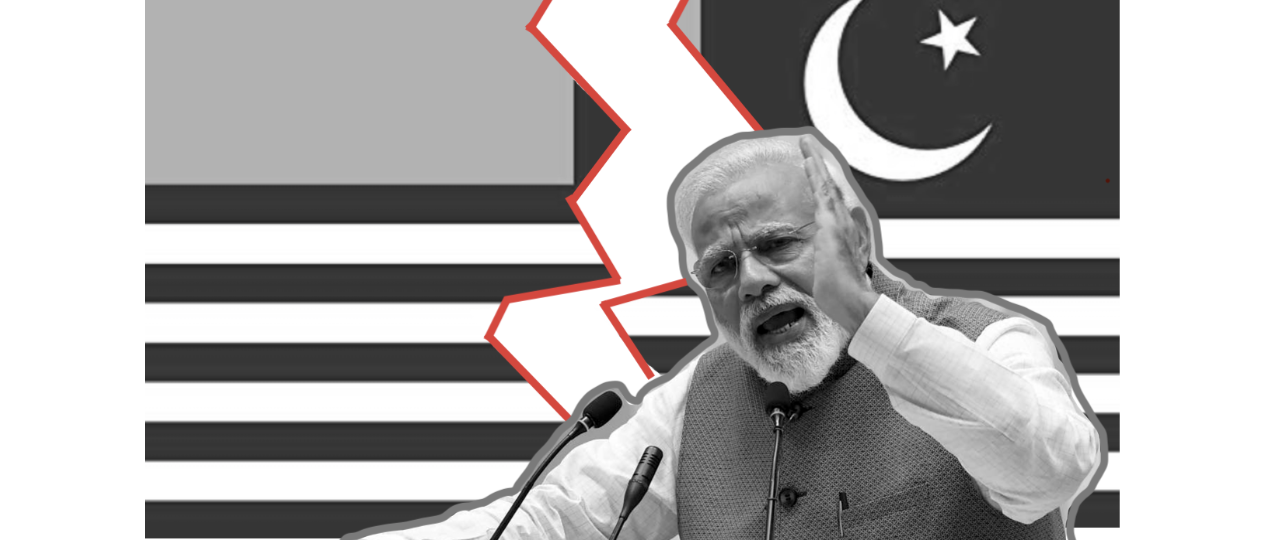This week, India witnessed the alteration of the special status enjoyed by the state of Jammu and Kashmir. Along with it, India also witnessed the demise of its democracy. The scrapping of Article 370 of the constitution and the dismembering of the state of Jammu and Kashmir by the Indian government was unconstitutional and undemocratic. It was an open assault on the federal structure of India and undermined the democratic principles of the country. One can always debate the merits and demerits of Article 370. But this piece analyses the subject matter, the process followed and the impacts of this decision.
Article 370:
This is a special provision of the Indian constitution that confers the state of Jammu and Kashmir with a unique status. This provision dates back to the year 1947, when the then Maharaja of the state , Maharaja Hari Singh executed the legal document, crafted by the India government on the accession of Jammu and Kashmir with India. Article 370 ensured certain special rights such as, Kashmir’s own constitution, its own flag and more importantly ensured Jammu and Kashmir’s legislative autonomy. It had the power to enact its own laws except on matters of defence, external affairs and communication. Such matters were under the jurisdiction of the Central government. Initially, in 1947 after the Indian independence and the creation of the state of Pakistan, the maharaja had decided not to join either Independent India or Pakistan. However, after certain geo-political developments, the maharaja agreed for the accession of the state with the “Dominion of India”. One must note that Article 370 was classified as a temporary provision. The Government has termed this as a historic move which eliminates the discrimination which prevailed earlier. And that the state is now yet another ‘normal’ state and this ensures the equality within the Indian states. But one fails to understand that India is an asymmetric federal state. Asymmetric federalism is federalism based on, “unequal powers and relationships in political, administrative and fiscal arrangements spheres between the units constituting a federation”. For instance, Article 371 of the constitution accords special powers to north-eastern states of India. Hence, the scrapping of article 370 echoes the assault on India’s federal structure. If at all it was imperative to scrap article 370, why was no one from the state consulted? In the legal context, the Supreme Court Judgement in the case of SBI vs Gupta holding holds that, despite the article being a temporary provision, the article shall cease to exist until “there is a recommendation of the Constituent assembly of the state”. At present the state of Jammu and Kashmir is under President’s rule (suspension of state government and under direct rule of the central government). The government has taken advantage of such a situation and has carried out its actions which is unconstitutional in nature.
Dismembering of the State of Jammu and Kashmir:
The decision to dismember the state of Jammu and Kashmir into two Union Territories was undemocratic. The two Union territories include Ladakh and Jammu and Kashmir. Ladakh was earlier a region in the state of Jammu and Kashmir. The Indian system of governance divides territories into States and union territories. The states have greater powers and a higher level of autonomy, whereas, the union territories, are directly administered by the central government despite having its own legislature. The move to lower the status of Jammu and Kashmir from a state to that of a union territory is one with many flaws. How can one dismember a state without the consent of the people and the political elite of the state?
The undemocratic process:
The actions in Kashmir have reflected that India is no longer a liberal democracy. The people of the state and the local political leaders were effectively gagged. Section 144 which prohibits the assembly of people in public spaces was revoked, communications including internet and landlines were shut down and the state’s political elite was arrested by police.
The Modi government which is blessed with a huge mandate does have the powers to take decisions, but with due consultations and by respecting the interests of the region. India is a democracy as well as a Republic. Consultations and negotiations are a part of democracy. Imagine a similar situation: it would have been unthinkable for the UK to exit the European Union without a referendum.
It is ironic how Prime Minister Modi in many of the foreign summits has reiterated that he was keen to create “a just, representative and democratic global order”. This reflects his double standards– internationally a democrat, but domestically an authoritarian.
The myth of development:
Prime Minister Narendra Modi had stated that this decision would make way for development in the region with more industries, private investments and employment. A report published by the newspaper ‘The Hindu’ has stated that Jammu and Kashmir were placed above most of the Indian states in certain key indicators. For instance, Jammu and Kashmir has an average life expectancy of 73.5 well above the national average of 68.7. Jammu and Kashmir’s human development index (HDI) was 0.68 which was again well above most of the states including Prime Minister Modi’s home state of Gujarat. The state also has a literacy rate of 75% , which is higher than the national average.
“I urge the private sector to promote and expand technology in J&K. Ladakh can be a big solar power centre”- Prime Minister Narendra Modi
Another question is how the Prime Minister plans to increase private investment in Jammu and Kashmir when the Indian economy is facing a slowdown. It is a known fact that the investment figures are low in India. When people are wary in investing in prominent Indian cities such as Delhi and Mumbai , why would they invest in an unstable region such as J&K? The optics could be said to be laughable.
Move could backfire:
Many experts on the issue of Kashmir like Michael Kugeman, fear that such handling of an already disputed and highly unstable region could backfire on the government. Such actions could provoke drastic measures which could end in violence. The process of scrapping of Article 370 has further alienated the people of Kashmir. There is a risk of radicalisation of the youth and an increase in cross border terrorism.
For the past 70 years, under all governments, Kashmiris have faced restrictions on their freedoms. Draconian laws such as the Armed Forces (Special Powers) Act which grants special powers to the Indian armed forces have caused immense hardship to the people. The recent actions are seen as one more move which could push the region into further violence and instability.
The Government instead of finding the road for a solution to the problem, has unfortunately travelled miles in the opposite direction. The government has chosen to embark on this misadventure: by imposing a solution on a section of people with absolutely no consultation is not progress. It reeks of aggression.





If you think for a second that my samosa business will be affected by INDO-PAK relations your wrong. My honest opinion is that if anything more people will buy my product, due in nature to its delicious pastry, moreover the fact Kashmir is no longer independant makes people nervous that is in actual fact great for food businesses such as myself as people eat neavously whilst we await the outcome. TENSION MAT.